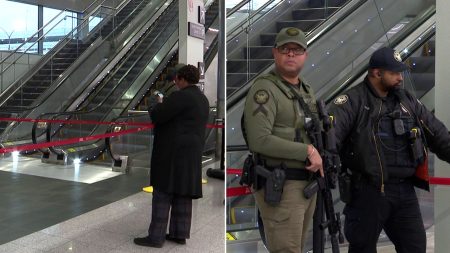A Quarter Century of Transformation: Blurring the Lines between Macau and Mainland China
Twenty-five years after Macau’s return to Chinese sovereignty, the Special Administrative Region (SAR) is experiencing a profound shift in its economic relationship with the mainland. The once clearly defined boundaries are progressively dissolving, creating a new era of integration and interdependence. This transformation, driven by a combination of policy directives, infrastructural developments, and evolving economic realities, presents both opportunities and challenges for Macau as it navigates its unique position within the Greater Bay Area (GBA) initiative. The initial "one country, two systems" framework, designed to preserve Macau’s distinct legal and economic systems, is now being reinterpreted in the context of closer ties with the mainland, leading to a more fluid and interconnected economic landscape.
The integration process is multi-faceted, impacting various sectors and reshaping Macau’s economic identity. One of the most visible manifestations is the increasing flow of people, goods, and capital across the border. The completion of the Hong Kong-Zhuhai-Macau Bridge, a mega-infrastructure project, has significantly reduced travel time and facilitated cross-border commerce. This improved connectivity has not only boosted tourism but has also fostered closer business ties, enabling companies in Macau to leverage the vast market and resources of the mainland more effectively. Simultaneously, mainland investment in Macau has surged, particularly in the gaming and tourism sectors, further solidifying the economic interconnectedness. This increasing integration has contributed to Macau’s economic growth and diversification, but also raises concerns about maintaining its unique character and autonomy.
Beyond physical infrastructure, policy initiatives from both the central and Macau SAR governments have played a crucial role in blurring the economic boundaries. The GBA development plan, a national strategy aimed at creating a world-class city cluster, positions Macau as a key player alongside Hong Kong and nine mainland cities in the Pearl River Delta region. This plan encourages greater economic collaboration and resource sharing within the GBA, further diminishing the traditional distinctions between Macau and the mainland. Furthermore, policies promoting the use of the Renminbi in Macau and facilitating cross-border financial transactions have streamlined economic interactions, making it easier for businesses to operate across the border and solidifying the mainland’s economic influence.
However, this increasing integration also presents challenges for Macau. The reliance on the mainland market, particularly in the gaming and tourism sectors, exposes Macau to fluctuations in the mainland economy. Any slowdown in mainland growth could have significant repercussions for Macau’s economic performance. Moreover, the influx of mainland businesses and capital raises concerns about maintaining fair competition and protecting local businesses. The challenge lies in finding the right balance between leveraging the benefits of integration while safeguarding Macau’s unique economic and social fabric. This necessitates careful policymaking and regulatory oversight to ensure a sustainable and equitable development path.
Another key challenge is the increasing pressure on Macau’s infrastructure and public services due to the influx of visitors and residents from the mainland. This influx strains existing resources, including housing, transportation, and healthcare, and necessitates significant investments to expand capacity and improve service delivery. Addressing these infrastructural and social challenges is crucial for maintaining the quality of life in Macau and ensuring the long-term sustainability of its development. Furthermore, the integration process also necessitates adjustments in Macau’s legal and regulatory framework to accommodate cross-border business activities and ensure compliance with mainland regulations. This requires careful consideration of the potential impact on Macau’s legal autonomy and the need to maintain a level playing field for all businesses.
Looking ahead, Macau’s economic future is inextricably linked to its relationship with the mainland. The blurring of economic boundaries is an ongoing process, driven by both top-down policy directives and bottom-up market forces. Managing this process effectively requires a strategic vision that balances the opportunities of integration with the need to preserve Macau’s distinct identity and autonomy. This includes strengthening local industries, diversifying the economy beyond gaming and tourism, and investing in human capital to equip the local workforce for the evolving economic landscape. Ultimately, Macau’s success will depend on its ability to navigate the complexities of its unique position within the GBA and forge a sustainable and prosperous future within the larger context of China’s economic rise.










